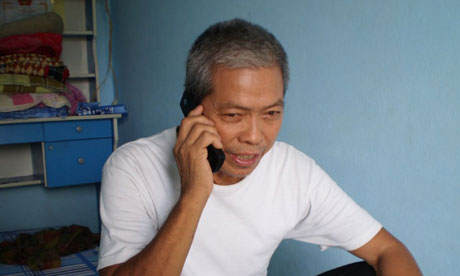By Terance Walsh
Impunity Watch Reporter, Europe
THE HAGUE, Netherlands — Germany has turned to the United Nations’ highest court on Monday to repeal an order by an Italian court for Germany to pay reparations to Italian victims of Nazi war crimes in Italy during World War II.

In 2004 a court in Italy ruled that Luigi Ferrini, an Italian civilian, was owed restitution because he was deported to Germany in 1944 and was forced into slave labor in the armaments industry. Ferrini initially filed his complaint against Germany in 1998. Since the Italian court ruled in his favor hundreds of relatives of victims of Nazi war crimes have filed complaints for enslavement, imprisonment, and killing.
In 2008 the Italian court decided to seize Villa Vigoni, an Italian-German cultural center on Lake Cuomo, to pay for the judgment. Germany initiated its case against Italy later that year.
The gravamen of the dispute is Germany’s contention that the Italian court’s ruling violates German sovereign immunity. The Germans maintain that allowing national courts to have jurisdiction over other nations would lead to “legal disorder.” Such a system would open the door for complainants to “shop around for the most favorable national courts” to hear their grievances, Germany’s top legal adviser said. By issuing an order of restitution, Italy “failed to respect the jurisdictional immunity” Germany is due under international law. Instead of focusing on the individuals, the Italian court should be concerned with the broader legal implications of its ruling.
Susanne Wasum-Rainer, Germany’s director-general of legal affairs, is concerned that if Italy were allowed to demand reparations “the consequences would be severe.” A decision favorable to Italy “would put in question and challenge open to challenges before domestic courts.”
“What this case is not about is the Second World War, violations of international humanitarian law or the question of reparations,” Wasum-Rainer added.
In response Italy asserts that the protection of human rights supersedes all other legal interests. No immunity, sovereign or otherwise, can be afforded in issues of crimes against humanity.
“Germany… has adopted a stance that denies Italian victims access to justice,” said Salvatore Zappala, Italy’s legal representative to the UN. “States cannot absolve themselves from the responsibility of reparations for serious violations of humanitarian law.”
“State sovereignty cannot be absolute,” added Giacomo Aiello, another member of Italy’s legal team. The Italian court held Ferrini’s rights higher than Germany’s interest in sovereign immunity because the crimes committed against Ferrini were “international crimes,” which took precedence over sovereign immunity.
The Greeks stand behind Rome in this matter. Many of Greece’s citizens have similar claims against Germany and will be allowed to argue their case before the World Court. The Greeks’ claims arise from the killing of 214 Greek civilians in the village of Distomo at the hands of the Nazis in June 1944.
To Miltiadis Sfountouris, the law suits are not about money. “It’s a moral thing, to find justice.” Sfountouris said his 78-year-old mother jumped from a window in Distomo to escape the Nazi death squads. She still lives in Distomo and has never received reparations. Even though courts have ruled in favor the victims’ families for war reparations, the victims have been blocked from confiscating German property in Greek territory to pay for the damages. As a result, no reparations have actually been paid for the massacre.
In addition to individual Greek lawsuits, the Greek government will exercise its right to participate in the dispute between Italy and Germany. Prime Minister George Papandreou announced the decision last January to his cabinet. “We are all aware of the gravity and significance of this issue and of its special symbolism,” he said. He cited “obvious moral, legal and political reasons but also important issues of the highest national importance and the overall interests of the country at a specially crucial period for our homeland…. Our actions serve a self-evident debt to actively honor the memory of those that sacrificed themselves for this homeland.”
Recently Germany paid almost $6 billion to over one million people or their relatives who were exploited by the Third Reich.
The UN Court will be charged with weighing individual rights against the order and consistency of state sovereign immunity. Germany and Italy will argue their cases this week but the court is not expected to rule on the matter for several months.
For more information please see:
IOL News — Victims of Nazi war turn to court — 16 September 2011
Expatica — Nazi crimes victims before Italian courts a “last resort” — 13 September 2011
Tengri News — Germany, Italy before UN world court over Nazi reparations — 13 September 2011
Deutsche Welle — Germany, Italy face off in court over Nazi war crime reparations — 12 September 2011
The State — Germany, Italy at UN court over WWII compensation — 12 September 2011
Athens News — Greek government to back war reparations claim in ICJ — 12 January 2011

